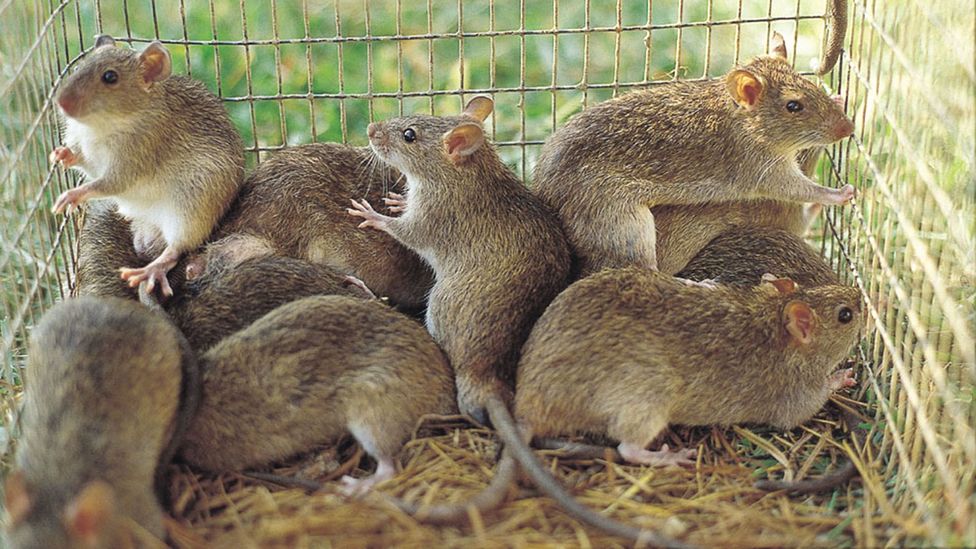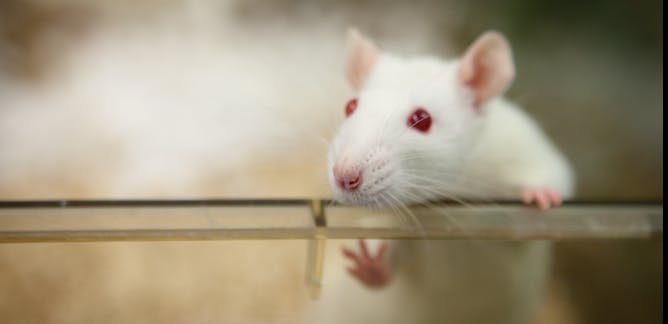10 years after researchers found that guinea pigs will safeguard an individual rodent in trouble, however not a rodent they consider an outcast, new exploration pinpoints the cerebrum locales that drive rodents to focus on their closest and dearest in the midst of emergency. It additionally recommends people might have a similar neural predisposition.
10 years after researchers found that guinea pigs will safeguard an individual rodent in trouble, yet not a rodent they think about an outcast, new examination from the University of California, Berkeley, pinpoints the mind districts that drive rodents to focus on their closest and dearest in the midst of emergency. It additionally proposes people might have a similar neural predisposition.
The discoveries, distributed today, Tuesday, July 13, in the diary eLife, propose that selflessness, regardless of whether in rodents or people, is propelled by friendly holding and commonality instead of compassion or blame.
"We have tracked down that the gathering personality of the bothered rodent significantly impacts the neural reaction and choice to help, uncovering the natural instrument of ingroup inclination," said study senior creator Daniela Kaufer, a teacher of neuroscience and integrative science at UC Berkeley.
With nativism and clashes between strict, ethnic and racial gatherings on the ascent universally, the outcomes recommend that social coordination, as opposed to isolation, may help participation among people.
"Preparing a typical gathering participation might be an all the more remarkable driver for inciting favorable to social inspiration than expanding compassion," said study lead creator Inbal Ben-Ami Bartal, an associate educator of psychobiology at Tel-Aviv University in Israel.
Bartal dispatched the investigation in 2014 as a postdoctoral Miller individual in Kaufer's research facility at UC Berkeley. Bartal, Kaufer and UC Berkeley brain science teacher Dacher Keltner drove an exploration group that tried to distinguish the cerebrum networks initiated in rodents in light of compassion, and regardless of whether they are reflected in people. The outcomes propose they are.
"The finding of a comparative neural organization engaged with empathic aiding in rodents, as in people, gives new proof that mindful to others depends on a common neurobiological system across well evolved creatures," Bartal said.
Utilizing fiber photometry, immunohistochemistry, calcium imaging and other analytic instruments, specialists tracked down that every one of the rodents they examined experienced sympathy in light of another rodent's indications of misery.
Nonetheless, to follow up on that compassion, the aide rodent's neural prize hardware must be set off, and that possibly happened if the caught rodent was of a similar kind as the assistant rodent, or individual from its ingroup.
"Shockingly, we tracked down that the organization related with compassion is actuated when you see a bothered companion, if they are in the ingroup," Kaufer said. "Interestingly, the organization related with remuneration flagging was dynamic just for ingroup individuals and connected with aiding conduct."
In particular, the rodents' compassion associated with the mind's tactile and orbitofrontal locales, just as with the foremost insula. In the mean time, the rodents' choice to help was connected to movement in the core accumbens, a prize community with synapses that incorporate dopamine and serotonin.
For the investigation, in excess of 60 sets of confined rodents were observed throughout about fourteen days. A portion of the sets were of a similar strain or hereditary clan while others were not.
In every preliminary, one rodent would be caught inside a straightforward chamber while the other wandered aimlessly in a bigger nook encompassing the chamber.
While unconstrained rodents reliably flagged compassion because of the predicament of caught rodents, they just worked to free those that were essential for their ingroup, in which case they would lean or knock their heads into the enclosure entryway to deliver the rodent.
To be sure, in surveying the consequences of various measures to comprehend the neural foundations of that inclination, the exploration group found that while every one of the rodents in the preliminaries detected their pen accomplice's misery, their minds' award hardware was possibly enacted when they acted the hero of an individual from their ingroup.
In addition, people and different warm blooded animals share for all intents and purposes a similar compassion and prize districts in the mind, inferring that we might have comparative predispositions toward our ingroup with regards to helping other people, Bartal noted.
"In general, the discoveries propose that sympathy alone doesn't anticipate helping conduct, and that is actually a significant point," she said. "Thus, assuming you need to propel individuals to help other people who are enduring, it is possible that you need to expand their sensation of having a place and gathering enrollment, and work toward a typical personality."
"Enthusiastically," she added, "we track down that this system is entirely adaptable and decided basically by friendly experience. We will currently attempt to see how supportive of social inspiration shifts when rodents become companions, and how that is reflected in their cerebrum movement."
Notwithstanding Kaufer, Bartal and Keltner, co-creators of the investigation are Jocelyn Breton, Huanjie Sheng, Kimberly Long, Stella Chen and Aline Halliday of UC Berkeley; Justin Kenney, Anne Wheeler and Paul Frankland of the University of Toronto; and Carrie Shilyansky and Karl Deisseroth of Stanford University.






![Is Helium a Noble Gas? [ EDU Science ]](https://blogger.googleusercontent.com/img/b/R29vZ2xl/AVvXsEhnf4spv6HGlGiVe5Zu3zN6z4KP91ZQfpPrQurkHaeBksi6eOYDbVr1Cyvfd51AP99ebC48IwK2xsGZIarbflINNfC5_FFYrfqg3h1qNR01uUzM_umyNUg2S5c8aWHKQLjBYSE9UoHSIw/w100/cartoon-happy-frog_160606-288-removebg-preview+%25283%2529.png)
![What is aerodynamics?[ EDU Science ]](https://blogger.googleusercontent.com/img/b/R29vZ2xl/AVvXsEhN4R6-c-aaMLVew58tuGqq54Gu1bN6I1ICP_wLrCZPVI9UttDlBVIMNzn9OGrIlSJ8sGwgb5JBsH8E8eMxy-sjgUmOIZvBjcE8OWuPMOauTQdjFe1slakhBWpqfeqZB8HHnLouFN_uNg/w100/unnamed.jpg)
0 Comments
If you have any doubt let me know.